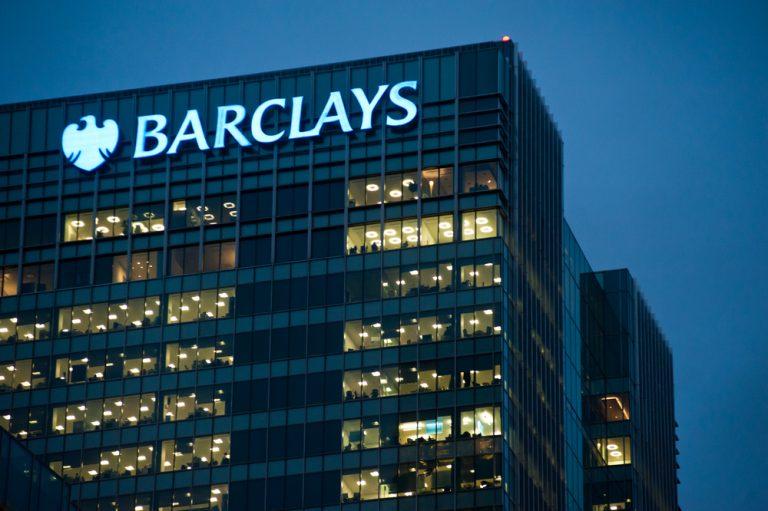
Shares in Barclays (LON:BARC) fell on Wednesday as the bank released their half year reported which highlighted continued pressure from coronavirus on the bank’s profitability.
Barclays set aside a further £1.6bn in the most recent quarter meaning total impairment charges for the half year were £3.7bn.
This hit profit for the quarter which came in at just £1.3bn, down from £3bn in the same period a year ago.
The reduction in profit was recorded despite an 8% increase in revenue to £11.6bn.
Barclays shares fell on the news, trading over 4% down at 107p in morning trade on Wednesday.
However, the underlying performance of Barclay’s business appeared to show some strength as pre-provision profits of £5bn in the half year were ahead of the £4bn recorded in the same period a year ago.
“Credit impairment charges increased to £3.7bn in the first half due to the forecast impact of COVID-19. However, our improved pre-impairment performance ensured that we still delivered £1.3bn profit before tax for the first half of 2020, post impairment.”
“In the quarter Group total income decreased 4% year-on-year to £5.3bn, with total costs down 6% to £3.3bn. Following our £1.6bn quarterly credit impairment charge, profit before tax was £359m, and Group RoTE was 0.7%, with EPS of 0.5p,” Jes Staley, Barclays CEO, summarised in a statement.
There was strength in the banks trading division which saw revenues increase nearly 50%. Higher market volatility in equities and fixed income in the midst the coronavirus crisis were central to the increase in revenue from investment activity.
Barclays overal Corporate and Investment Banking (CIB) revenue was up 31% to £6.9bn in the half year.
Barclays also revealed there involvement in the government’s support for British business through the Bounce Back Loan Scheme and CBILS.
“Since late March, we have helped to deliver around £22bn of vitally important COVID-19 government support measures to UK businesses to help fund them, including 250k government backed Bounce Back Loans totalling c.£7.7bn, c.£2.5bn under the CBILS programmes and c.£11.7bn of commercial paper issuance,” said James Staley, Barclays CEO.
“To help consumers with their short-term household finances more than 600k payment holidays1 have been provided along with other fee waivers and support measures. We have also already distributed £45m of our £100m Community Aid Package to COVID-19 related charities in the UK, US and India to help rebuild communities.”
“Our CIB is taking a leading role helping clients to access capital markets to raise equity and debt, underwriting c.£620bn of new issuance in the quarter. In the equity capital markets, where we are a UK leader and broker to 40 of the FTSE 100 and FTSE 250 companies, we supported UK companies to raise £4.0bn as they navigate this crisis.”
The Barclays CEO continued to highlight the diversified nature of the business that produced £5bn in profit, before the impact of coronavirus provisions.
“The reason that we have been able to support the economy as extensively as we have and remain financially resilient is because of our diversified universal banking model. Our strength in diversification has delivered pre-provision profits of £5.0bn and, even after impairment, we remain profitable. Income increased 8% to £11.6bn for the half, with total costs down 4% to £6.6bn resulting in positive jaws of 12%, and an improved cost to income ratio of 57% versus prior year.”
“In our CIB, income increased 31% to £6.9bn driven by strong performance in our Markets business, particularly in FICC (up 83%) and Equities (up 26%), and an 8% increase in Banking fees income through continued momentum in both debt and equity capital markets.”
“Our consumer business income decreased by 11% in Barclays UK and 21% in CC&P as a result of the lower interest rate environment, fewer interest earning balances, reduced payments activity and action to provide support for customers.”
“Our CET1 ratio stands at 14.2% which underscores the strength of our balance sheet. Although we will remain well capitalised and ahead of our minimum requirements, we may experience stronger capital headwinds in the second half of the year. The Board will decide on future dividends and capital returns at the year-end 2020.”
“While the remainder of 2020 will be challenging, our diversified model means we can remain financially resilient and continue to support our customers and clients.”
Barclays share price
With today’s drop adding to a rather dismal 2020 for Barclays share price, investors are now looking at an overall fall of 39% for Barclays share year-to-date.

